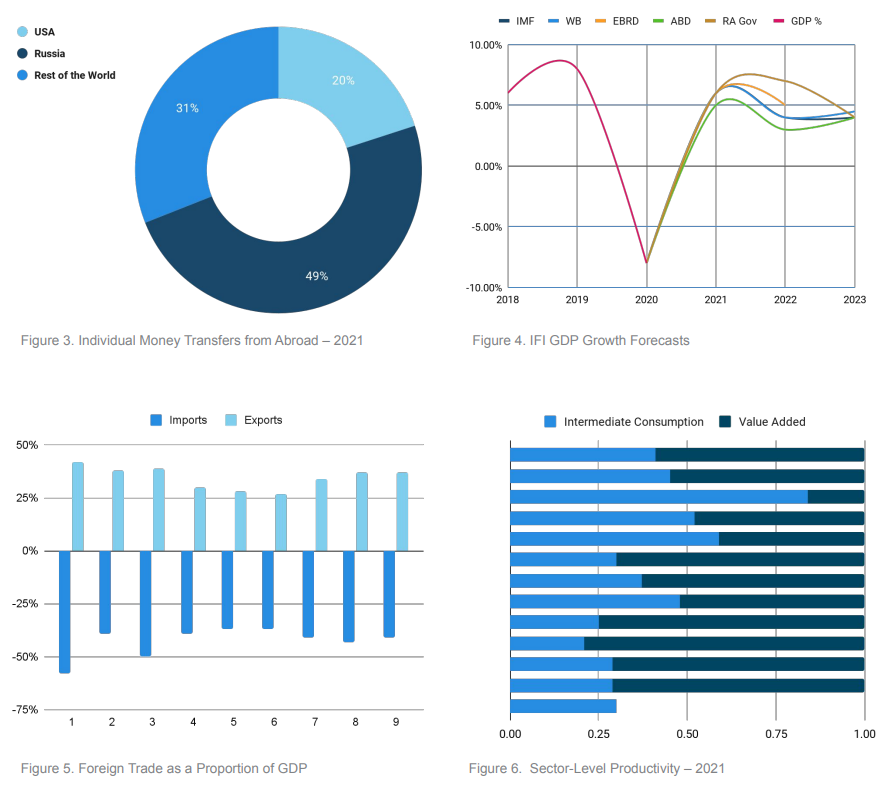Key Developments
On January 11, 2021, an agreement was signed by Russia, Armenia, and Azerbaijan, announcing their decision to build infrastructure, transportation, and trade networks that would extend from Iran to Russia on the north-south line and from Azerbaijan to Turkey on the east-west line. The country entered into a phase of internal turmoil in the face of protests demanding Government resignation, snap parliamentary elections, opposition declaring national resistance against the election results, cease-fire violations, normalization attempts with Turkey, and negotiations with Azerbaijan. Responses to the humanitarian and displacement crisis, border delimitation and demarcation between Armenia and Azerbaijan and return of Armenian prisoners of war became top priorities for the country. The victory of the ruling Civil Contract party in the snap parliamentary elections held in June 2021 endowed the government with renewed legitimacy.
Key Macroeconomic Indicators from UN Common Country Analysis (CCA)

In 2021, the Freedom in the World score on political rights and civil liberties in Armenia increased to 55/100, classifying Armenia as partly free; while the Freedom on the Net score increased to 71/100, classifying the country as free. The elections also resulted in an unprecedented increase of women’s representation in the Parliament from 24% to 34%. Following the electoral victory, the GoA presented a five-year program, outlining the priorities for 2021-2026. The political and security context, however, continued to affect the progress of Armenia’s reform agenda. Finalization of the community consolidation reform and local government elections in the fall-winter of 2021 were other highlights of the year, affecting the overall political context.
Despite the lingering geopolitical tensions and humanitarian concerns, 2021 was still a period of slow recovery in the country. The economy, which significantly declined during the pandemic period, started to show signs of recovery in the second half of 2021.

